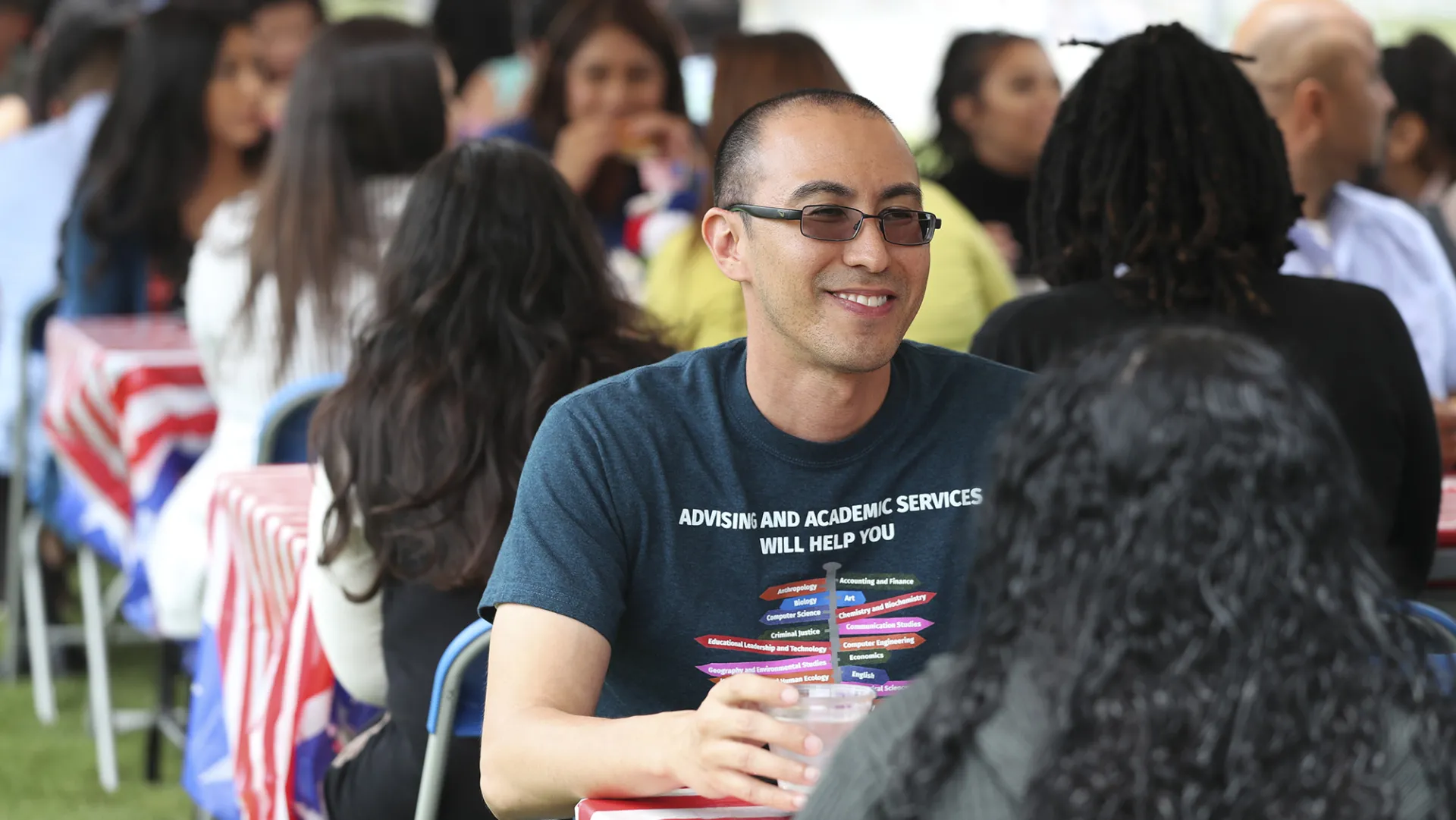Joe Gutierrez | Office of Strategic Communication | (909) 537-3007 | joeg@csusb.edu

Cal State San Bernardino’s advising academic services is creating “Advise Up,” a yearlong program designed to improve academic advisors’ wellness, retention and self-care, after receiving a $30,000 Stupski Foundation grant.
“This grant will support the wellness, growth and professional development of academic advisors, which should also lead to retention,” said Matthew Markin, Academic Success and Undergraduate advisor.
The grant is the Stupski Foundation’s first open invitation to support advisor wellness. The foundation was reestablished by Joyce Stupski as a spend down foundation and to honor the memory of her husband, Larry Stupski, the former president and chief operating officer of Charles Schwab. Larry Stupski was passionate about using his success to create opportunities for others. The Stupskis were committed to giving back to the communities they called home.
The grant is in association with the National Academic Advising Association (NACADA), which, in its awarding of the grant to CSUSB, said, “after reviewing dozens of submissions, your application rose to the top,” in part because of its ability to outline the issues facing the campus and its intentions to address them.
Some of the issues named are lack of resources, advisor burnout, excessive job demands and demoralization.
The listed issues are also discussed as expanding beyond impacting just advisors, but students as well.
To address and improve these issues, Markin and a team of CSUSB members from Academic Success & Undergraduate Advising and Orientation & First-year Experience are collaborating on the creation of the yearlong program.
“This is a new initiative and innovative way to incorporate staff on the front lines,” Markin said. “By allowing the advisors to navigate the grant process, this leads to a grassroots effort where advisors get to participate and implement goals that contribute to wellness and retention.”
The first step in the program is to send an email survey to academic advisors to assess needs, issues and areas of support that are lacking. Following the survey, the team will collaborate and create a professional development plan that will be implemented in January.
The goal of the plan is to create a community of practice, provide a nine-month professional development series, coordinate wellness excursions, develop awards, develop a fund for NACADA membership and create a social media account.
To create a community of practice, advisors will be brought together to share knowledge, stories and practices in a safe space.
For the nine-month professional development series, speakers and facilitators will discuss topics such as mental health, wellness and career progression.
As for the wellness excursions, activities will include hiking, cultural trips, kayaking and leadership challenge courses.
An outstanding academic advisor award will be handed out annually to provide recognition with a celebration and monetary award. By creating a NACADA membership fund, advisors will be members and receive benefits such as resources, practices and community forums.
The social media account is being created to hold accountability for use of the grant, advisor highlights and visual documentation.
The budget for these activities is as follows; $8,000 for wellness activities, $14,000 for off-campus speakers and travel, $5,000 for the NACADA membership fund and $3,000 for the advisor award.